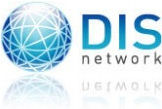There are two fundamental difference between the two.
Value encoding
Gobs encodes value by a tag byte followed by a compact byte encoding of the value. The tag identifies the type of the value and its encoded byte length. The byte encoding drops trailing 0 bytes of the value.
IDR uses the most common computer internal representation of data as encoding and has thus no marshaling work.
Advantages
Gobs has two major benefits. The first benefit is that the type of data is provided with the value which allows anyone to decode the values of a message without prior knowledge of its content. The second benefit of such encoding is that data can be split in blocs anywhere since decoding is processed byte after byte.
IDR has the advantage of fast and trivial marshaling as in RPC and IIOP.
Disadventages
The price to pay with Gobs is the additional tag byte and the marshaling work. With IDR, it is the code complexity to ensure the atomicity of the base values if a data stream needs to be split and the absence of base value type information with the data.
Type encoding
Gobs provides the maximum type information with the message so that it is self describing. This makes the encoding more complex since conciseness competes with expressiveness.
RPC, IIOP and ICE rely on the context to determine the type of encoded data. The encoding targeting mainly use in communication, this optimization make sense to some extend.
IDR precedes any message with a type reference. The type reference is a key to a distributed database similar to the DNS from which a description of the data contained in the message may be obtained. It is possible to obtain a concise form to efficiently parse the data by a program or a detailed expressive form with comments to be used by humans.
The IDR data type description strategy seems the most efficient because the data type description is written once. But the decoupling of the type description from the data expose to the risk of loosing access to the data description if it gets deleted.
Conclusion
There are some good and bad points on both sides and there is no easy way to merge the good points into a new optimal encoding.
My experience is that the IDR encoding, while simple and efficient on some aspects, was quite complex to develop.
Today I still favor IDR's choice because of the marshaling efficiency. Olivier Pisano managed to translate the C++ IDR library to the D language in a very short time. So maybe it is just the conception and validation of IDR that took so much time.
I like very much the smart encoding of the base values in Go, but not so much to force all floating point values to be encoded into a double precision float (64bit). I hope they'll change that.
There are other differences between IDR and Gob which have not been detailed here. What they have in common is that both may use their encoding to support persistence. IDR may use it with its distributed database.


 RSS Feed
RSS Feed
